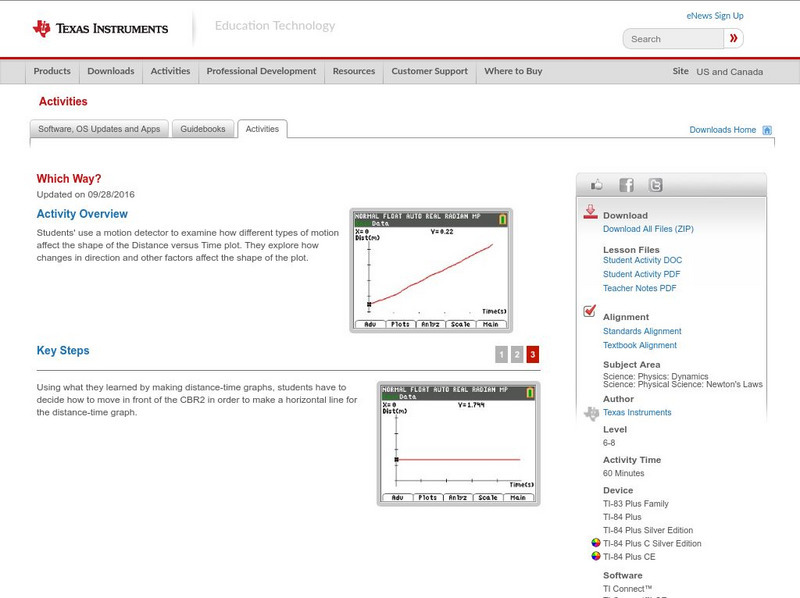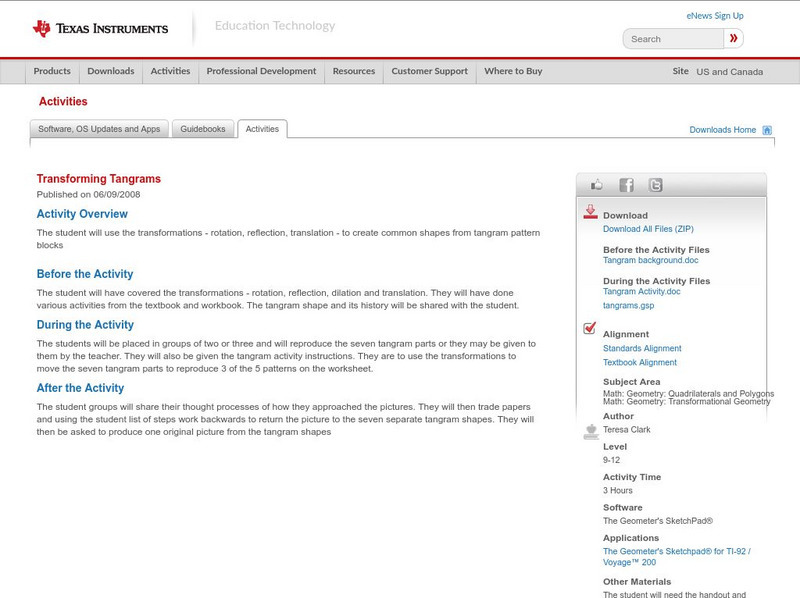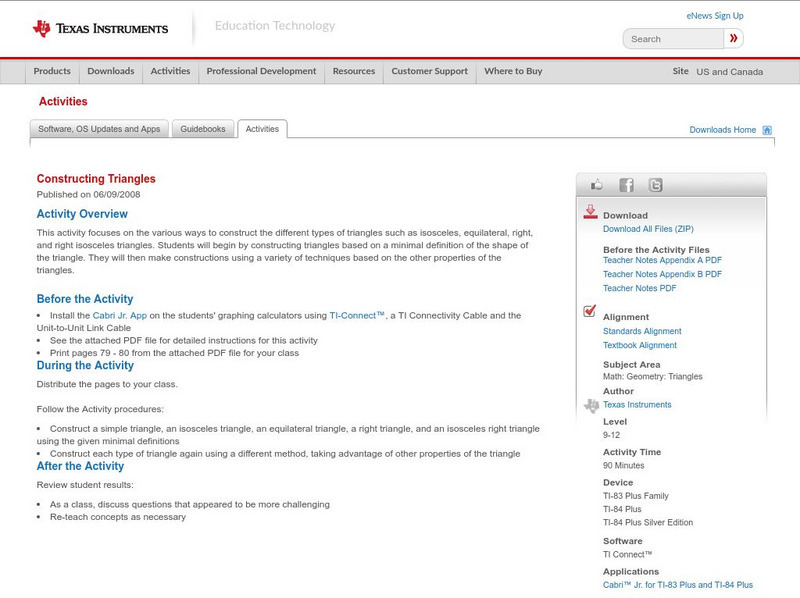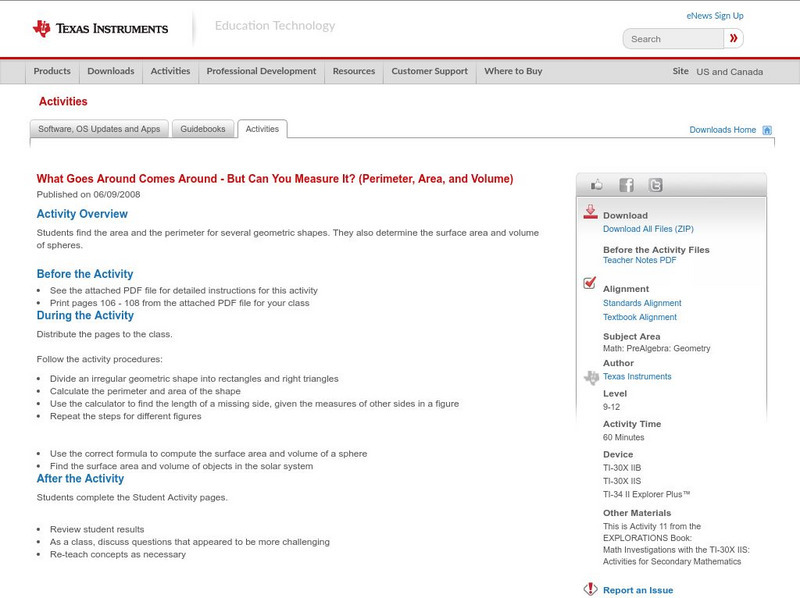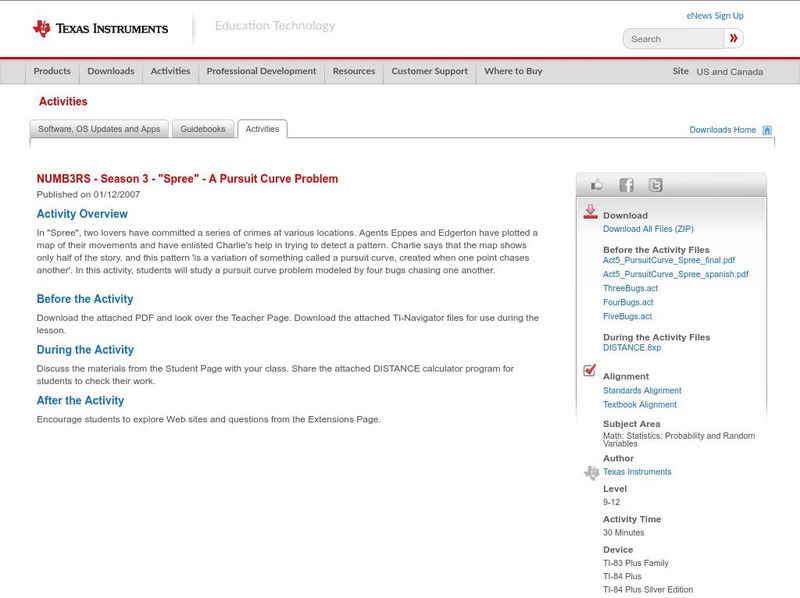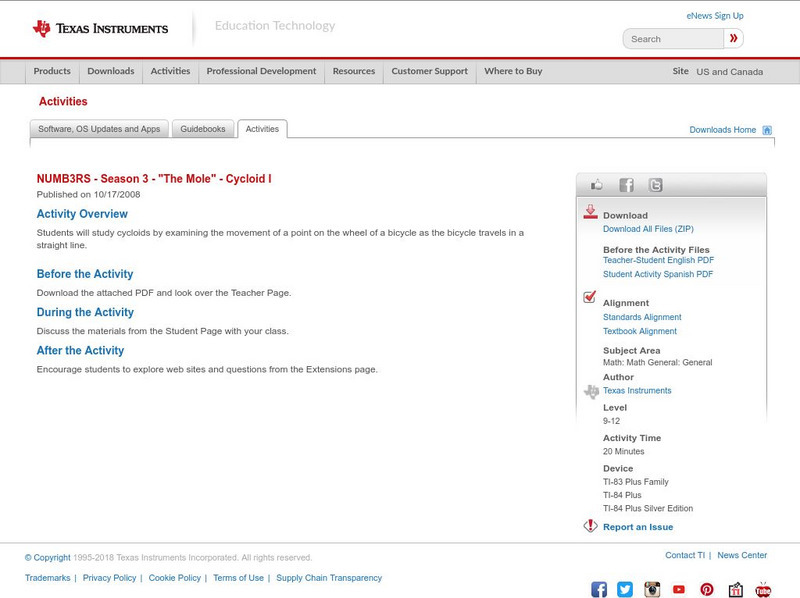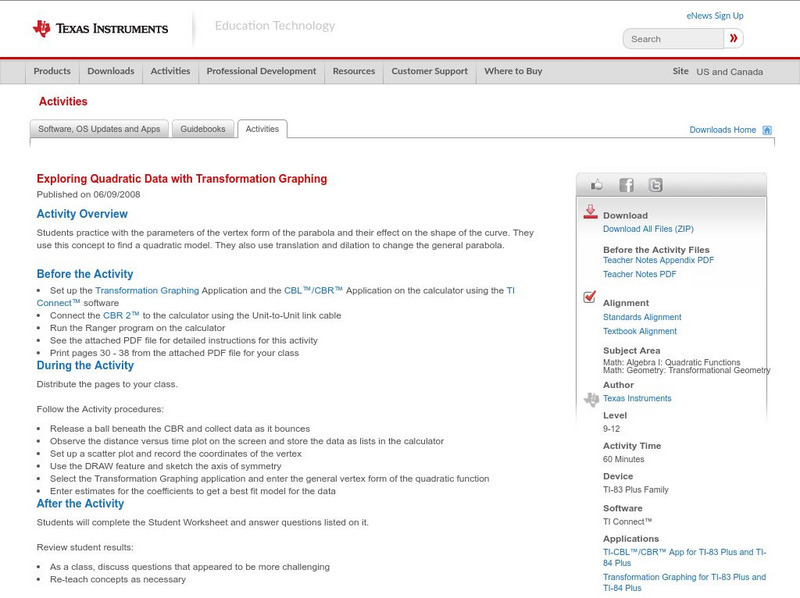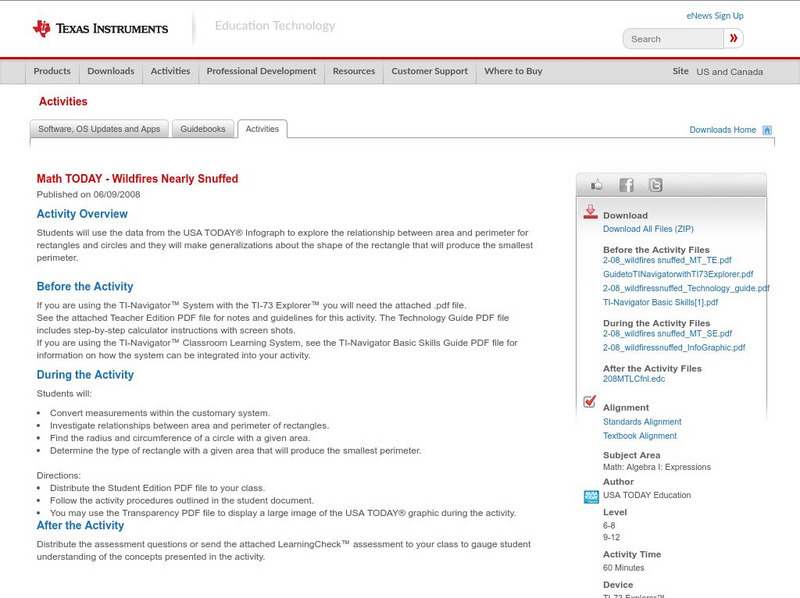Alabama Learning Exchange
Alex: Shaping the Future
Students will utilize new found knowledge of architectural design and engineering to apply math and science skills in building a structure. By using interactive websites, they will create scale drawing plans and design and engineer a...
George Eastman Museum
African Americans: Black History Through Photography
A collection of photographs from the Eastman House collection. They include portraits of important figures who shaped American history, as well as many other African Americans, whose names are unknown.
American Association of Physics Teachers
Com Padre Digital Library: Open Source Physics: Lorenz Attractor Periodic Orbits
Simulation of a Lorenz attractor which is shaped like a butterfly. Manipulate the image and observe from all sides as the orbits about two fixed points are drawn.
Alabama Learning Exchange
Alex: Polygon Perimeters
Lesson providing practice for finding the perimeters of polygons. Students draw polygons using sidewalk chalk and then measure the perimeters of each shape.
National Council of Teachers of Mathematics
Nctm: Illuminations: Isometric Drawing Tool
This site includes an interactive math tool to create drawings on isometric dot paper. You can draw figures using edges, faces, or cubes. Rotate and color your drawings, and view them in 3D or 2D.
Texas Instruments
Texas Instruments: Which Way?
Students' use a motion detector to examine how different types of motion affect the shape of the distance versus time plot. They explore how changes in direction and other factors affect the shape of the plot.
Texas Instruments
Texas Instruments: Box Plots: How Many Pairs of Socks
The purpose of this lesson is to help students use the shape of a line plot to interpret the shape of a box plot.
Alabama Learning Exchange
Alex: Bubble Bubble
This lesson plan will help young students understand the shape and movement of bubbles. Students will predict, practice, and record results as they blow bubbles with different-shaped objects.
Texas Instruments
Texas Instruments: Investigating Segments in a Quadrilateral
In this activity, students use the tools of Cabri Jr to test their knowledge of geometry. They investigate the properties of the shape formed by connecting the midpoints of adjacent sides of a quadrilateral.
Texas Instruments
Texas Instruments: Transforming Tangrams
The student will use the transformations - rotation, reflection, translation - to create common shapes from tangram pattern blocks
Texas Instruments
Texas Instruments: Constructing Triangles
This activity focuses on the various ways to construct the different types of triangles such as isosceles, equilateral, right, and right isosceles triangles. Students will begin by constructing triangles based on a minimal definition of...
Texas Instruments
Texas Instruments: Transformations in Geometry
In this activity the teacher will send two lists, a window range, and an educational document via the TI-Navigator. Students will explore the reflections and rotations of a shape in the rectangular coordinate system.
Texas Instruments
Texas Instruments: The Bigger the Better?
In this activity, students calculate the surface area and volume of different shaped cell models. They develop an understanding of the differences in cells and their function
Texas Instruments
Texas Instruments: Plate Tectonics
This plate tectonic activity is designed to assess the comprehension of concepts related to the physical processes that shape the Earth's surface.
Texas Instruments
Texas Instruments: What Goes Around Comes Around but Can You Measure It?
In this activity, students find the area and the perimeter for several geometric shapes. They also determine the surface area and volume of spheres.
Texas Instruments
Texas Instruments: Classifying Quadrilaterals
Students will be sent ordered pairs through lists using the TI-Navigator. These pairs will then be graphed as a line graph and students will classify the shape of the quadrilateral and justify their choice.
Texas Instruments
Texas Instruments: Numb3 Rs: A Pursuit Curve Problem
Based off of the hit television show NUMB3RS, this lesson introduces students to pursuit curves, in which objects follow seemingly awkward paths due to other objects chasing it. In this lesson (which is technology intensive), students...
Texas Instruments
Texas Instruments: Graphing Families of Quadratic Functions
Students can use the Transform app to explore families of quadratic functions. Generalization about the effect of a, b and c coefficients have on the shape and position of the graph in general form, and the effect of a, h, and k in...
Texas Instruments
Texas Instruments: Perimeter Patterns
In this activity, students investigate patterns in ordered pairs generated by constructing a sequence of similar shapes. They then use the patterns and the calculator to predict the perimeter of a specific shape in the sequence.
Texas Instruments
Texas Instruments: Numb3 Rs: Cycloid I
Based off of the hit television show NUMB3RS, this lesson is more about student prediction and reasoning than actual formal math. In the lesson, students are to propose the shape that would be formed by a point on a bicycle tire, while...
Texas Instruments
Texas Instruments: Exploring Quadratic Data With Transformation Graphing
Students practice with the parameters of the vertex form of the parabola and their effect on the shape of the curve. They use this concept to find a quadratic model. They also use translation and dilation to change the general parabola.
Texas Instruments
Texas Instruments: Central Limit Theorem
This set contains questions regarding the Central Limit Theorem. The student sees that, as the size n increases, the shape of the sampling distribution gradually approaches a normal curve, and its population standard deviation decreases.
Texas Instruments
Texas Instruments: Polygon Area
Students will compare areas of different polygons with a fixed perimeter and find the shape that gives the maximum area
Texas Instruments
Texas Instruments: Math Today Wildfires Nearly Snuffed
Students can use the data to explore the relationship between area and perimeter for rectangles and circles and they will make generalizations about the shape of the rectangle that will produce the smallest perimeter.





